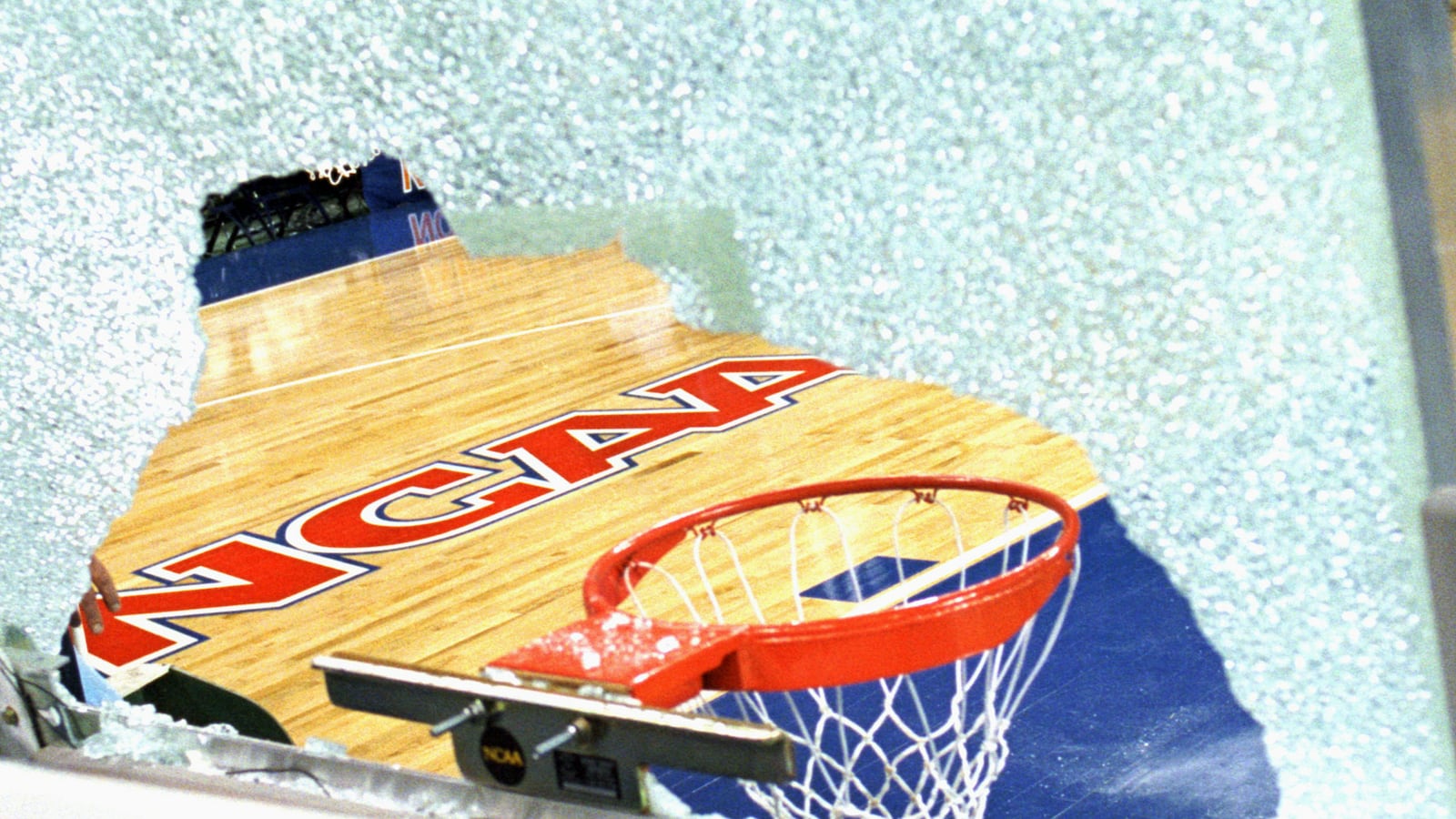The most suspenseful NCAA event of the season didn’t happen on a basketball court.
It happened when the college athletics association’s Board of Governors met to discuss North Carolina’s new “compromise” bill HB142, which was signed by Governor Roy Cooper, late last week, rolling back portions of the state’s anti-transgender “bathroom bill” HB2.
Now, much to the disappointment of LGBT rights groups, the NCAA is lifting its ban on North Carolina championship events.
The NCAA had previously pulled tournaments from North Carolina over HB2 and was reportedly threatening to pull even more championship events from the state through the spring of 2022 unless the law was changed before a deadline last week.
LGBT rights groups were hoping over the weekend that the NCAA wouldn’t be “fooled” by HB142, which technically got rid of North Carolina’s “birth certificate” requirement for transgender restroom use but still bars local governments from passing LGBT non-discrimination ordinances until 2020 and bans state entities like the University of North Carolina from setting their own transgender-inclusive restroom policies without legislative approval.
In other words, as executive director of the National Center for Transgender Equality Mara Keisling wrote to the NCAA, state schools that host championship games can’t fully “welcome trans students and fans” to attend:
But Tuesday morning, the NCAA finally revealed its long-awaited decision: NCAA championship events will return to North Carolina.
“We are actively determining site selections, and this new law has minimally achieved a situation where we believe NCAA championships may be conducted in a nondiscriminatory environment,” the NCAA announced in a statement on Tuesday morning, adding that “a majority on the NCAA Board of Governors reluctantly voted” to allow North Carolina bids to be considered.
But “reluctantly” or not, they have voted that HB142 is sufficient for championship games to return. The NCAA will, however, require any potential host of a championship event in North Carolina to “submit additional documentation demonstrating how student-athletes and fans will be protected from discrimination.” What that documentation would entail is not specified in the statement.
LGBT rights groups had been bracing themselves for the decision and they were swift to condemn it.
“What a sell-out,” Lambda Legal tweeted, immediately after the news broke.
“It is disappointing to see the NCAA backpedal after it stood strong against the deeply discriminatory HB2,” said Equality NC Executive Director Chris Sgro in a statement, adding that the NCAA “put a seal of approval on state-sanctioned discrimination.”
“The NCAA's decision to backtrack on their vow to protect LGBTQ players, employees and fans is deeply disappointing and puts people at risk,” said Human Rights Campaign president Chad Griffin. “After drawing a line in the sand and calling for repeal of HB2, the NCAA simply let North Carolina lawmakers off the hook.”
In a statement to The Daily Beast, Hudson Taylor, the executive director of Athlete Ally, called the Board of Governors vote “a crass decision” that puts “money over principle.”
“Today, the NCAA told the LGBTQ community—including their own students--that they aren’t a priority,” Taylor wrote. “The hypocritical decision to move contests back to the state of North Carolina will have detrimental consequences on LGBT players, fans, coaches and officials that have entrusted the NCAA to establish and maintain an inclusive environment at championships and events.”
In another statement, Sarah Kate Ellis, President and CEO of GLAAD, said: “Add NCAA to the list of politicians and organizations who are willing to use HB2’s fake ‘repeal’ as an excuse to throw human rights to the sidelines.
“This ‘repeal’ doesn’t only harm transgender people, but it also prevents LGBTQ non-discrimination ordinances from being approved in any North Carolina city for three years. The NCAA’s timeout on LGBTQ rights sends this message to its LGBTQ athletes: you are on your own.”
The NCAA did not immediately respond to The Daily Beast’s request for comment on the LGBT community’s reaction to the decision. The Tuesday morning statement, however, provides some insight into the Board of Governors’ decision-making process.
The statement maintained that the board “remains concerned” that HB142’s ban on local LGBT non-discrimination ordinances until 2020 may send “a signal that discriminatory behavior is permitted and acceptable, which is inconsistent with the NCAA bylaws.” However, HB142 apparently still “meets the minimal NCAA requirements” for championship events return to the state.
The statement claims that HB142 “restores the state to [the pre-HB2] legal landscape”; however, North Carolina—along with Arkansas and Tennessee— is now one of only three states that restrict the passage of local LGBT non-discrimination ordinances, as the News & Observer recently noted.
The NCAA statement only briefly acknowledges the bathroom issue raised by Keisling and other LGBT leaders. Indeed, the word “bathroom” only appears once: “Further, outside of bathroom facilities, the new law allows our campuses to maintain their own policies against discrimination, including protecting LGBTQ rights, and allows cities’ existing nondiscrimination ordinances, including LBGTQ protections, to remain effective.”
But that HB142-imposed omission on allowing campuses to regulate access to their own “bathroom facilities” may cause major problems for transgender fans moving forward.
According to the 2015 U.S. Transgender Survey, almost 60 percent of transgender respondents said they avoided a public restroom over the past year because they were “afraid of having problems.” That statistic included 75 percent of transgender men and 53 percent of transgender women.
Even more concerning is the fact that an overall one in eight respondents had been “verbally harassed, physically attacked, or sexually assaulted” over restroom use in the last year.
So however HB142 allows campuses to protect LGBT people “outside of bathroom facilities,” those facilities themselves are vital for transgender attendees.
James Esseks, the director of the ACLU’s LGBT and HIV project, focused on this section of the NCAA statement, writing in a press release, “North Carolina’s new law does nothing to guarantee that LGBT people will be protected from discrimination, and as the NCAA’s own statement acknowledges, the rights of trans student-athletes, coaches, and fans in particular remain in legal limbo.”





